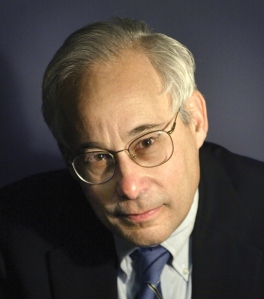That proposed regulation, which was released at the end of March, outlined how qualifying ACOs could earn additional payments if they could save the Medicare program money. But there were plenty of caveats. The Centers for Medicare and Medicaid Services proposed that ACOs meet a certain threshold of savings before they could get any money back. And the rule also set rigorous standards for quality of care, requiring ACOs to meet 65 quality measures.
Since the rule came out, many physicians’ groups have criticized the proposal, saying that it made it too difficult for physicians to get involved. The steep up-front investment in technology, workflow redesign, and staffing, coupled with the uncertainty of achieving savings, would be too much for many practices, they argued. And even officials at the Cleveland Clinic, a health system that many viewed as a prime candidate for being a successful ACO, have said they see major problems with the Medicare plan for ACOs as it stands today.
Earlier this week, Dr. Don Berwick, the CMS administrator, defended the direction his agency is headed with ACOs. In a speech to participants at an ACO learning session sponsored by CMS in Minneapolis, Dr. Berwick said ACOs are one big step toward building a different, better health care system that promises to improve care for individuals and the population as a whole, all while lowing cost. But he admitted that it was a “very, very difficult step.”
There will be growing pains for everyone in the health care industry as they move forward with ACOs, he said. For instance, physicians, nurses, and other health care providers will have to learn to work together in teams to care for patients with chronic illnesses. Physicians working in the operating room and in the intensive care unit will need to truly embrace checklists. And everyone will have to grow used to their electronic health records and disease registries. Prevention, he said, must become an “obsession.”
And beyond those cultural changes, there are many other obstacles. There’s stranded capital, Dr. Berwick said, and a workforce that is underinvested in primary care and not well suited to supporting continuity of care. There are immature metrics to measure what goes on in an ACO and limited capacity to use the metrics that do exist, he said. Plus, there’s the problem that most of the money paid out by Medicare and private insurance is for the volume of care delivered, not the quality of care received.
But those aren’t reasons to shy away from ACOs or other fundamental reforms of the health care system, Dr. Berwick said. To help overcome some of the obstacles to the success of ACOs, CMS’s Innovation Center is holding learning programs like the one in Minneapolis. They are also experimenting with the idea of advancing funds to promising ACOs that lack start-up money. And they are working to get better data out of the Medicare system. “We intend to help,” Dr. Berwick said.
How many ACOs are likely to emerge next year when the program begins? Dr. Berwick said he doesn’t know, but he’s hopeful that officials at CMS can craft a final rule that will attract many organizations. He urged physicians, hospitals, and others to consider taking a leap of faith, despite the risks. “I ask you to think again about what you risk if, while the world shifts around you, you choose to stand still.”
So does Dr. Berwick make a convincing case for ACOs and the government’s shared savings program? Let us know what you think.
— Mary Ellen Schneider (on Twitter @MaryEllenNY)


